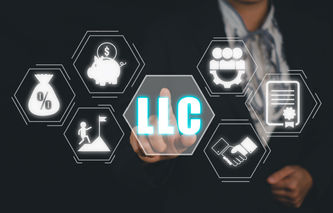Definition
A corporation is a business that is organized as a separate legal entity from the owners of the company. Ownership in a corporation is typically determined through the issuing of shares of common stock. One of the distinguishing characteristics of a corporation is limited liability.
Explanation
Corporations are created by filing a corporate charter with a state. Once the new corporation has been approved by the state, it is a legal entity that is separate from its owners. This limits the responsibilities of the owners for the liabilities of the corporation.
Almost all companies are formed as limited liability organizations. So while the owners of the company could lose their investments, they could not be held liable for the money owed to creditors.
Related Terms





.jpg)

